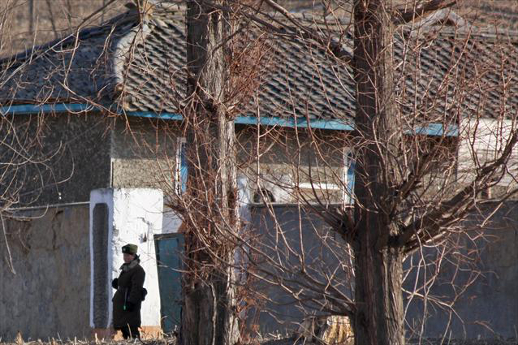
North Korea has ordered the death of as many as 33 people because of their alleged contact with a missionary, South Korea’s largest news organization has reported.
The 33 North Koreans are charged with attempting to overthrow the regime by setting up 500 underground churches, according to the South Korean newspaper Chosun Ilbo, which cited an unnamed source. The newspaper said they are accused of working with Kim Jung-wook, a South Korean arrested by North Korean authorities in October on suspicion of trying to establish underground churches.
The executions will be carried out in a secret location administered by the State Security Department, Chosun Ilbo reported.
Kim, a Baptist missionary, appeared on North Korean television on Feb. 27 and said he was working at the direction of the South Korean National Intelligence Service, and that his goal was the collapse of the Pyongyang regime. It’s unknown whether Kim’s TV appearance will earn his release.
During the same television broadcast, North Korean authorities showed recorded interviews with five North Koreans who said Kim had provided money to them, Chosun Ilbo reported. The news agency did not say whether the five shown on the broadcast were among the 33 who had been arrested. It did report, however, that they said Kim vowed, after toppling the regime, to build a church on the Pyongyang spot where today a statue of North Korean founder Kim Il-sung stands.
It’s not known how many of the 33 arrested people are Christian.
Kim was arrested in the North last October for allegedly establishing underground churches. Chosun Ilbo cited an unnamed source from China as saying North Korean agents kidnapped Kim in the border city of Dandong, China, and took him into North Korea.
North Korean leader Kim Jong-Un has ordered “unclean elements” from the country. Last year, his uncle and mentor Jang Song-Thaek was executed. Jang’s children, brothers and grandchildren were killed shortly thereafter.
The sentencing of the 33 North Koreans came a day after Australian missionary John Short arrived in China after being detained for several weeks in North Korea for leaving Christian pamphlets in a Buddhist temple. North Korea’s state news agency, KCNA, said Short had apologised and admitted violating North Korean laws. According to KCNA, North Korea expelled Short, 75, partly in consideration of his age.
American missionary Kenneth Bae remains imprisoned in North Korea following his November 2012 arrest while leading a tour group. Prosecutors alleged Bae was planning a coup by setting up bases in China, encouraging North Korean citizens to bring down the government, and waging a smear campaign. Despite apparent ill health and diplomatic pressure to release him, Bae continues to serve a 15-year sentence.
“The ashes whirled over the road we walked every day. Each time my feet crunched, I thought: ‘One day the other prisoners will walk over me.’ ”
North Korean refugee
Christians estimated to number in the tens of thousands are held in North Korea’s prisons and labor camps. Last week, one survivor of a three-year interment described to World Watch Monitor the conditions of the camp where she was imprisoned. Her name is being withheld because of her fears that the North Korean government might retaliate against family still living in the North.
The woman said she and several others were arrested a decade ago for fleeing North Korea, and were returned to North Korea and sent to prison.
“These escapees betrayed me and told the police I had taught the Bible to them,” the woman told World Watch Monitor. “I had been beaten during the first interrogations, but now the torture became worse. The guards put a rod between my knees and pushed me down. I told God I could not take the torture anymore and prayed He would guard my lips so I would not deny Him.”
After almost a year in different prisons, the woman was sent to a labor camp for nearly three years.
“The walls of our barracks were bloodstained, because we killed as many fleas and lice as we could,” she said. “We received only a few spoons of rotten corn meal each. The soup we ate was usually just dirty water. If we were thirsty and wanted extra water, we needed to steal it from the nearby stream, which was polluted by the garbage of the guards.”
The death rate was so high that bodies stacked up outside the crematorium, she said.
“Sometimes, they rotted for days in sheds before they were disposed or burnt. The ashes whirled over the road we walked every day. Each time my feet crunched, I thought: ‘One day the other prisoners will walk over me.’ ”
If there were other Christians in the camp, they didn’t reveal themselves.
“Nobody spoke about their faith in the camp,” the woman said. “Besides, I was lucky enough to be sent to a re-education camp, and I was eventually released. Most Christians are put in so-called total-control zones. Political labor camps.
“Nobody is ever released from there.”